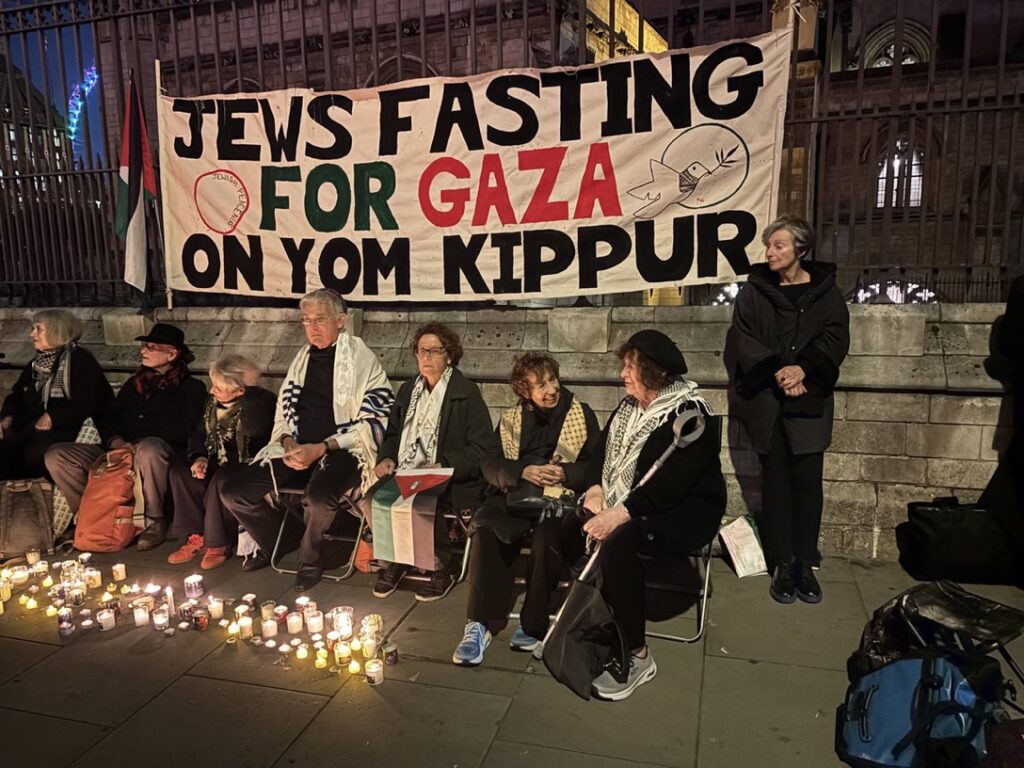Holocaust Survivor at the Center of Britain’s Crackdown on Pro-Palestinian Protests
Carolyn Gelenter, daughter of a Holocaust survivor, being arrested by police in Parliament Square. Video courtesy of Novara Media.
London —
Stephen Kapos, 87, survived the Holocaust as a child. This winter, he laid flowers in Trafalgar Square to commemorate Palestinians killed in the Gaza war. Weeks later, he was summoned to Charing Cross police station. The interview request places a Holocaust survivor inside Britain’s tightening approach to protest and speech around Gaza.
Mr. Kapos says he is proud to speak for peace and regards protest as a civic duty. Police describe routine inquiries in a volatile environment. Rights groups see the summons as part of a broader turn toward criminal enforcement to manage political dissent.
A Deliberate Arrest, on Camera
In Parliament Square, a separate scene captured the shift. Carolyn Gelenter, the daughter of a Holocaust survivor, said she intended to be arrested in solidarity with demonstrators opposing the proscription of Palestine Action. Officers detained her mid-interview. The footage circulated widely and, for campaigners, marked a move from crowd management to deterrence by arrest.
Proscription and the Threshold for “Support”
The government’s designation of Palestine Action under counterterrorism law makes membership or public support a criminal offense, with penalties of up to 14 years’ imprisonment. At a recent London protest, hundreds were detained—most on suspicion of expressing support for a proscribed organization; others on public-order allegations. Ministers frame enforcement as necessary to prevent extremism. Civil-liberties lawyers note that the statutory threshold for “support” can reach placards, slogans and symbolic acts, converting expressive conduct into criminal exposure.
Deference, Proportionality and the Courts
British courts typically defer to the executive on national security, but individual prosecutions turn on proportionality. Mr. Kapos’s questioning, arising from a non-disruptive memorial gesture, tests the boundary between necessary policing and overreach. Ms. Gelenter’s case, anchored in an explicit challenge to the proscription regime, sits nearer the statute’s core. The question is whether the state can criminalize political expression without collapsing the line between dissent and incitement.
Memory as Ground, Not Metaphor
For both figures, memory is the premise of participation. Their presence broadens the coalition challenging the current approach and complicates the narrative: survivors and descendants invoking historical responsibility while confronting a policing model that treats expressive solidarity as suspect. Proceedings will move case by case. The underlying issue—how far a democracy constrains political speech in the name of security—remains unsettled.


